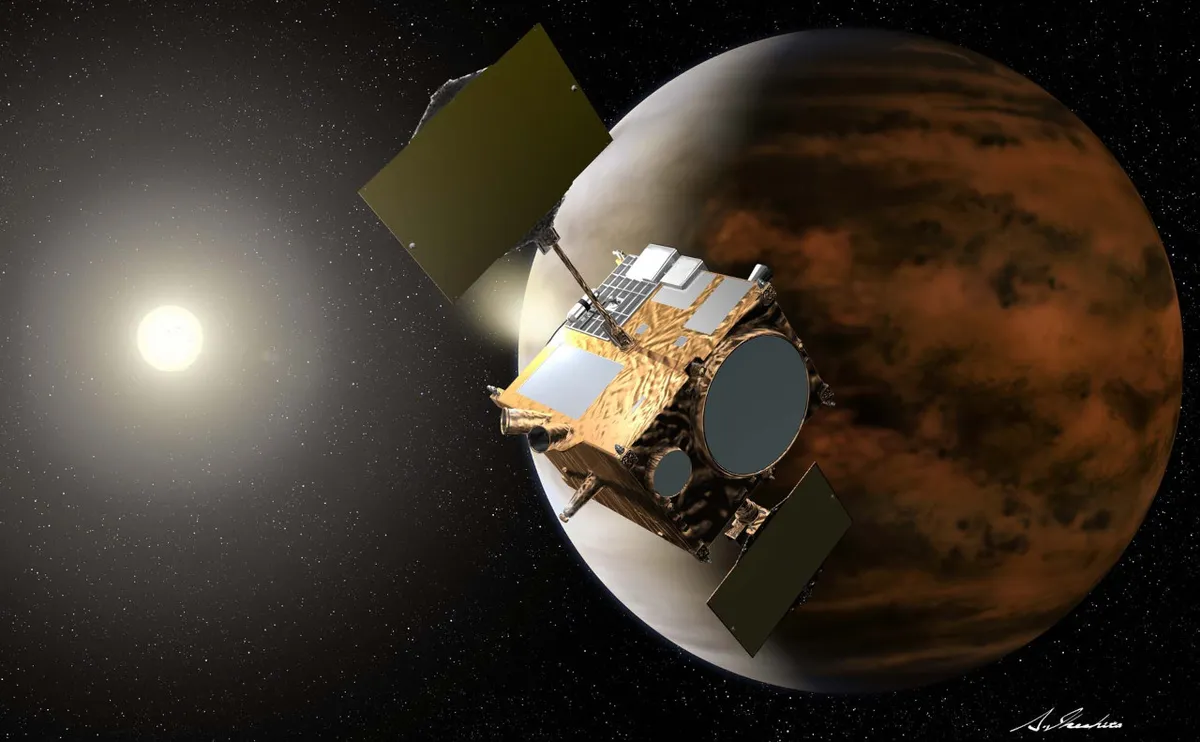
The Akatsuki, Japan’s groundbreaking Venus Climate Orbiter, was launched on May 21, 2010, marking a significant milestone in space exploration. Although the mission faced an initial setback with an orbital insertion failure, it began its active observations of Venus in 2015. Since then, Akatsuki has been on a remarkable journey, providing valuable insights into the atmosphere and climate of our neighboring planet, Venus.
Throughout its mission, Akatsuki has continuously observed Venus, gathering critical data that has advanced our understanding of the planet’s complex climate. However, in April 2024, the mission faced significant challenges when contact was lost due to attitude control issues. Despite these setbacks, Japan’s space agency, JAXA, made concerted efforts to restore communication with the spacecraft.
On September 18, 2025, JAXA officially announced the end of the Akatsuki mission. After extensive attempts to regain functionality, the agency concluded that further recovery efforts were no longer feasible. This marked the conclusion of a mission that had far exceeded its original expectations.
The Akatsuki spacecraft was equipped with six sophisticated instruments, including cameras that observed the visible spectrum, as well as ultraviolet and infrared spectra. Additionally, it featured an oscillator designed for radio occultation experiments. These instruments allowed scientists to gather a wealth of data on Venus’s atmosphere, contributing to a deeper understanding of its weather patterns and volcanic activity.
By April 2018, all primary mission goals had been successfully completed, but engineers determined that Akatsuki had the potential to last several more years, surpassing its original design lifespan. The extended mission provided a treasure trove of scientific data, exceeding the expectations of researchers and enhancing our knowledge of Venus significantly.
As we reflect on the legacy of the Akatsuki mission, it stands as a testament to human ingenuity and perseverance in space exploration. The data collected by this remarkable Venus Climate Orbiter will continue to inform and inspire future research, solidifying Japan’s position as a leader in space science.